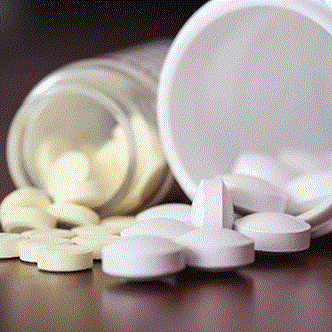
Less is more when it comes to the ideal dose of aspirin for heart attack survivors, according to a study that compared the risks and benefits of low- versus high-doses in patients after percutaneous coronary intervention.
Percutaneous coronary intervention (PCI), also known as angioplasty, is a procedure used to open blocked or narrowed arteries, often after a heart attack. Although most patients are prescribed aspirin after a heart attack, little is known about what dose of aspirin is safest and most effective.
To learn more, researchers conducted a study comparing the risks and benefits of low vs. high dose aspirin use after a heart attack, the results of which were recently published in Circulation. All anti-clotting drugs like aspirin carry risk of bleeding but can also prevent life-threatening heart events like heart attack and stroke.
The study included more than 10,200 heart attack patients that underwent PCI in U.S. hospitals between 2010 and 2012. Study patients received stents, which are implanted during PCI to strengthen the arteries and prevent future blockage. Roughly two-thirds of patients were prescribed daily high-dose aspirin after their procedure, while the other third took low-dose aspirin.
After following patients for six months, researchers found that risk of complications such as bleeding, heart attack and stroke was the same among patients taking either dose of aspirin. However, patients taking high-dose aspirin had higher risk of bleeding than those taking low-dose, although many bleeding events were not serious.
Findings confirm that low-dose aspirin is safer and just as effective as high-dose aspirin following a heart attack. This study also supports current guidelines from the American Heart Association and American College of Cardiology, which recommend low-dose aspirin over high-dose aspirin in heart attack patients after PCI.
It’s well known that aspirin can significantly reduce risk of a second heart event, making it the most commonly used drug among heart attack survivors. Researchers hope their findings help support current guidelines and guide treatment decisions for heart attack survivors.